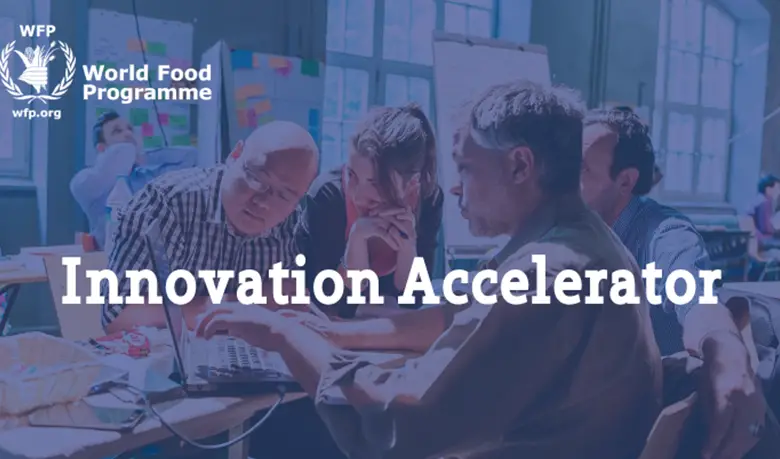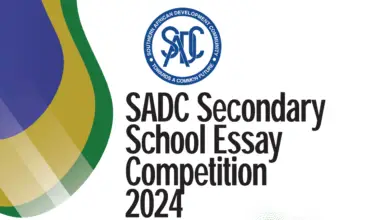WORLD FOOD PROGRAMME (WFP) INNOVATION CHALLENGE 2021

Apply for the World Food Programme (WFP) Innovation Challenge 2021
Deadline: Extended to 07 June 2021
Call for Applications
The United Nations World Food Programme (WFP) Innovation Accelerator sources, supports and scales bold new solutions to disrupt global hunger and achieve the Sustainable Development Goals.
With the Food Systems Summit coming up in 2021, we have launched the WFP Innovation Challenge 2021 in search of game-changing ideas to build stronger, more sustainable food systems, addressing hunger at the root.
The fact that 690 million people still go to bed hungry each night suggests that food systems — the path that food travels from field to our plates — are not meeting the needs of all people. We have seen that some food systems can easily be disrupted by climate shocks, COVID-19 and violent conflict. Even in stable environments, people have limited access to nutritious food because of geographic isolation, socioeconomic inequalities, or weak commercial markets.
This year’s campaign challenges us to innovatively rethink our food systems. We are looking for disruptive innovations for fighting hunger in areas such as resilience to shocks and stress; access to safe and nutritious food; and advancing equitable livelihoods for all.
New Application Deadline: 7 June 2021 11:59 pm (CEST)
What We Offer
- Selected teams will be invited to participate in a fully virtual WFP Innovation Bootcamp on 30 August – 3 September 2021.
- Projects will also be considered for the WFP Sprint Programme, a six-month acceleration programme with access to up to US $100,000 in equity-free funding, mentorship, and WFP’s global network of partners and vast field operations.
- Scaling innovations that have proven their concepts and value for social impact may qualify for further funding and support.
- The WFP Innovation Accelerator has a track record of organizing 34 flagship innovation bootcamps, supporting over 320 teams to rapidly refine their innovations, field testing over 90 projects within WFP operations, and bringing 14 disruptive innovations to scale, reaching more than 3.7 million people in 2020 alone.
What We Are Looking For
WFP’s current innovation priorities are listed here. We also encourage strong “wildcard ideas” to apply. Together with the brightest and best minds globally, we will be able to end hunger.
1. Resilient Food Systems
Improving the resilience of food systems is key to eradicating hunger. We are looking for solutions that enable communities to better resist and recover from the effects of conflict, natural hazards, pandemics, political instability and other shocks and stressors that drive food security in the long term. These solutions should have the potential to:
- Enable home grown school feeding initiatives that will improve the nutrition of schoolchildren and boost local economies;
- Enhance the resilience in shock-prone areas by helping stabilize prices, build safety nets for temporary assistance, and boost national social protection systems;
- Enable preventative actions for compounded risks and multiple shocks through early warning systems;
- Accelerate the rural transformation and reach households at the last mile leveraging e-commerce ecosystems;
- Promote women’s tenure rights to own and control assets;
- Enable smallholder farmers’ access to credit with climate risk profiling (e.g. using artificial intelligence to predict weather patterns, agricultural best practice, etc.) to de-risk credit guarantee schemes;
- Enable sustainable water management solutions to maximise the value of water for agricultural use;
- Foster clean energy technologies to power value chains;
- Increase private sector investment in sustainable development, including through blended financing mechanisms to support small projects.
2. Safe and Nutritious Food Systems
To end hunger and all forms of malnutrition, we need food systems that bring affordable and safe food products to all people. We are looking for solutions that increase the availability of nutritious food, making food more affordable and accessible. These solutions should have the potential to:
- Enable and expand the coverage of nutritious-sensitive social protection systems for food-insecure communities;
- Address micronutrients deficiencies in women and children;
- Enable biofortified crops such as naturally bred staple crops that have higher vitamin and mineral content than standard staples;
- Promote the implementation of comprehensive school food programmes (e.g. web-based school menu tools, artificial intelligence-powered tools to predict the attendance of students at school to ensure every child receives the food they need, etc.);
- Enhance nutrient intake of households by helping them plan their meals based on the availability of food in local markets, price constraints, dietary preferences, local food culture;
- Employ new affordable finished foods (that are not patented or subject to proprietary restrictions) that afford a balanced nutritional profile covering multiple vitamins and minerals, a shelf life of 12 months, and are stable at 30 C / 65% RH.
3. Inclusive Food Systems
Building food systems where no one is left behind will bring us a step closer to a world free from hunger. We are looking to support solutions that promote equitable livelihoods for all by empowering smallholder farmers and local producers and bringing food and income-generating activities to communities at the last mile. These solutions should have the potential to:
- Promote women-led enterprises to grow and sell nutritious crops;
- Support small-scale farmers to raise productivity;
- Bridge the digital divide and increase access to information and services for smallholder farmers;
- Facilitate and promote local food production;
- Enable financial inclusion for vulnerable communities in rural areas;
- Streamline social protection mechanisms across agri-food systems and related sectors;
- Generate and promote living incomes and wages in value chains for small-scale farmers and agricultural workers.
Eligibility Criteria
Applications will be scored according to a standard set of criteria* set by the WFP Innovation Accelerator, including:
- Alignment with WFP priorities and the impact towards the Sustainable Development Goal 2: Zero Hunger.
- The level of innovation the solution brings to WFP and the humanitarian sector at large.
- Indicators that the solution can be feasibly integrated and financed in the long-term, including the team qualifications.
*We reserve the right to adjust eligibility criteria based on the changing context as new information becomes available.
Application Process
- To submit your application, please fill in this Application Form before 7 June 2021 11:59 pm (CEST).
- If you know a relevant project for us to consider, please let us know by filling out this Referral Submission Form.
- We will review and match successful applications with one of our WFP Innovation Bootcamps in the next six months. The next Innovation Bootcamp is scheduled for 30 August – 3 September 2021 and is held virtually amid COVID-19 travel restrictions. We value all applications, however, we are only able to contact shortlisted applicants.
- Interested, but don’t feel your idea is ready yet? Don’t let this stop you! We accept applications on a rolling basis throughout the year, and applications received past this deadline will be considered for future programs in 2021. If you work at WFP, we will organize an internal WFP Call for Applications in Autumn 2021.
- For more information, see the Frequently Asked Questions.
About the WFP Innovation Accelerator
The WFP Innovation Accelerator sources, supports and scales high-impact innovations to disrupt hunger. Based in Munich, Germany, we provide WFP employees, entrepreneurs and startups with funding, hands-on support and access to WFP’s global operations. Through the Innovation Accelerator, WFP is leveraging unprecedented advances in digital innovation—such as mobile technology, artificial intelligence, big data and blockchain—and new business models to transform the way we serve vulnerable communities across the world. In five years, the WFP Innovation Accelerator has supported more than 90 projects in 46 countries, with 14 innovations scaling up to achieve significant impact. These projects have impacted 3.7 million lives in 2020 alone and will continue to do so, in support of WFP’s humanitarian field operations.
________
Also consider the following opportunity> ClimateScience Olympiad 2021
________
CLICK HERE to Join Youth Opportunities Hub WhatsApp Group (If you are already in one of our WhatsApp groups, then there is no need to join)
PAY ATTENTION: Join youthopportunitieshub.com Telegram Channel! Never miss important updates!
Please follow Youth Opportunities Hub on: Twitter | Facebook




